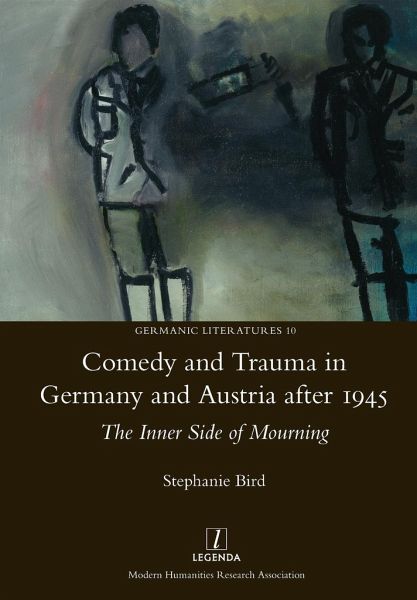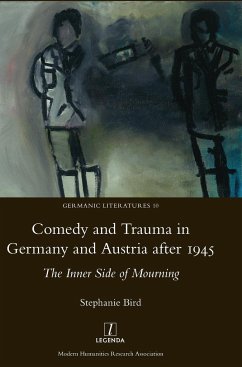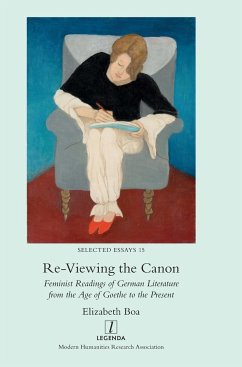
Comedy and Trauma in Germany and Austria After 1945
The Inner Side of Mourning

PAYBACK Punkte
9 °P sammeln!
Comedy is often held to be incompatible with trauma and suffering; it triggers anxiety and moral disquiet around the pleasure we take in reading or watching another's pain. Such concern is particularly acute in relation to suffering that has assumed the status of a cultural trauma, such as that caused by the Holocaust and the Second World War. This long overdue study explores the significance of the comical in German and Austrian postwar cultural representations of suffering. It analyses how the comical challenges the expectations and ethics of representing suffering and trauma. It does so, mo...
Comedy is often held to be incompatible with trauma and suffering; it triggers anxiety and moral disquiet around the pleasure we take in reading or watching another's pain. Such concern is particularly acute in relation to suffering that has assumed the status of a cultural trauma, such as that caused by the Holocaust and the Second World War. This long overdue study explores the significance of the comical in German and Austrian postwar cultural representations of suffering. It analyses how the comical challenges the expectations and ethics of representing suffering and trauma. It does so, moreover, by critically examining dominant paradigms which currently enjoy so much status - such as that of trauma and the nowadays automatic validity and universal applicability of victim identity. The study focuses on the work of Ingeborg Bachmann, Rainer Werner Fassbinder, W. G. Sebald, Volker Koepp, Reinhard Jirgl, Ruth Klüger, Edgar Hilsenrath and Jonathan Littell. Dr Stephanie Bird is Professor of German Studies at University College London.














